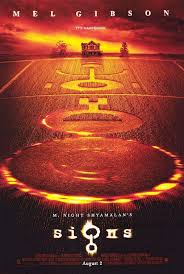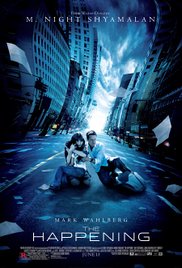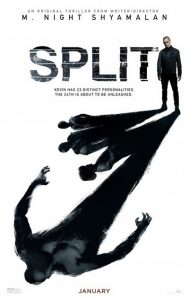The name of a signature movie director can evoke images, emotions, memories. Steven Spielberg’s name might connect one to a child’s optimism, or a fear of swimming in the ocean. See Michael Bay, and possibly get annoyed—in slow motion—thinking of too many damn explosions. Actors usually get most credit for movies, but sometimes the creative people behind them get their chance to shine too. Such was once the case with M. Night Shyamalan. He launched his career with utterly amazing movies, not just directing, but writing also. After he made a few immensely praised movies, he began a descent that led to a plummet. Such drastic change has to make one wonder what in the world happened to him.
Shyamalan went from an unknown director in the late 90s into a household name almost instantly. He created unique movies, blending supernatural elements into a realistic world. His directing style was sometimes copied—especially the twist ending craze that hit after The Sixth Sense. Someone seeing his early movies  today might find it hard to understand that Shyamalan captured a fresh perspective and seemed to represent the beginning of a moviemaking career that might help define an era.
today might find it hard to understand that Shyamalan captured a fresh perspective and seemed to represent the beginning of a moviemaking career that might help define an era.
Shyamalan worked in Hollywood and had filmed two movies prior to 1999. The Sixth Sense brought about the first buzz around him. Everyone seemed to recommend the movie, even if often relenting from saying what it was actually about. The Sixth Sense wasn’t the first movie about ghosts, nor was it frightening—though suggestive fright might come back to haunt a viewer late at night. The Sixth Sense mainly, had an amazing storyline. Seeing the twist ending without any foreknowledge was also a great experience. If you’re lucky enough not to know of this twist, then see this movie befor e some dope ruins it for you.
e some dope ruins it for you.
Unbreakable came out in 2000 at the forefront of superheroes invading Hollywood. The movie managed to weave superpowers into a serious storyline. Contrary to most alien movies that rely on violence and lots of special effects, Signs, was a highly anticipated summer blockbuster in 2002. With three homeruns, Shyamalan had set a standard for himself. Then the Village came out in 2004 and this was the first time one of his movies got considerable negative reviews from public and critical audiences. The movie was well made, but perhaps Shyamalan’s signature styles were growing to seem cliché—like his use of vibrant color as a subliminal signifier, and especially, the expectation of a twist.
Lady in the Water had some decent ideas, but the story didn’t seem as tightly woven as Sh yamalan’s other work. People criticized him of being an egomaniac for portraying a role in the movie where this character’s writing literally saves the world. Shyamalan was still considered a good screenwriter and director. But then in 2008, The Happening happened. I think this movie could have made for a better book. The movie is kind of like watching a group of kids run around from a pretend monster; the suspense just leaves way too much to the imagination and Shyamalan got harsh criticism for this one. So at the start of the new decade, he did something different by directing a movie not based off one of his own ideas.
yamalan’s other work. People criticized him of being an egomaniac for portraying a role in the movie where this character’s writing literally saves the world. Shyamalan was still considered a good screenwriter and director. But then in 2008, The Happening happened. I think this movie could have made for a better book. The movie is kind of like watching a group of kids run around from a pretend monster; the suspense just leaves way too much to the imagination and Shyamalan got harsh criticism for this one. So at the start of the new decade, he did something different by directing a movie not based off one of his own ideas.
The Last Airbender was based on a beloved cartoon series. The movie adaptation had a lot of potential. Shyamalan almost seemed out to sabotage the project by taking bizarre liberties from the cartoon, like mispronouncing the main character’s name and adding to the story what some criticized as racism. Around this time, Shyamalan also created a production company and he helped with the story on a movie called Devil. The movie received a rather bland response from audiences and wasn’t enough to overshadow the negative outlook toward his directing, which didn’t get any better when he seemed to have lost a bet or something, and had to direct After Earth for Will Smith’s son.
So what happened? How did the balance tip from Shyamalan seeming like a brilliant budding director, into becoming a rusty anchor that sank any movie he touched?
Some guesses:
- Shyamalan wanted to get away from what was expected with his name attached to projects, so tried to work on movies too far outside his genuine style to evolve into anything good.
- Pressure of Hollywood got to him: Perhaps the expectations, the allure of awards and heft of criticism all screwed with his thinking. Then again, perhaps the pressure came in the form of producers wanting to make big money and wanting Shyamalan to churn out movies too quickly.
- Praise of Hollywood got to him: Early praise of his work may have led Shyamalan into a false sense of confidence where he felt he could do no wrong with his movies. He thus may have stopped thinking about his audience. Critics have said stuff along the lines of it seeming like Shyamalan worked in a bubble of secrecy on his movies, a bubble which when it comes to light is so internally skewed that the movie doesn’t make any sense and the whole thing just pops.
- He ran out of his best ideas: His early movies were probably stories that Shyamalan cultivated over many years, perhaps going back before film school. Once he used up his best material and people expected more of the same from him, movies like Lady in the Water and The Happening, just didn’t have the same level of inspiration.
- Lastly, Shyamalan may have just had personal distractions. This can happen to anyone, right? The nature of his work is very public, and personal distractions certainly could affect creative work in a detrimental manner.
Any one of these reasons may have contributed to Shyamalan’s decline. Most likely, all these things contributed in some form or other. Some suggestions out there claim Shyamalan was just hyped up from the start, and that he was nothing except hype. This is far from true. Even if he’s written/directed some lousy movies, he has made extraordinary movies too.
The changing perception of him was a rather unfortunate thing for those who had been big fans of his early work. The contrast between what he had done, and what he seemed to be doing by the early ‘10s was almost painful. Except, Shyamalan’s career wasn’t over when he hit rock bottom—choose whichever movie you want for the rock.
 In 2015, Shyamalan’s work on a TV show, Whispering Pines, began to get some praise. Without many people even knowing he’d made a new movie, he released a low-budget found footage style movie called The Visit. This movie gets back to some of his more suspenseful roots, and even has a twist in the storyline. It got fairly decent praise, with people seeming very excited to see a movie by Shyamalan that wasn’t dreadful. Then this past year, he released Split.
In 2015, Shyamalan’s work on a TV show, Whispering Pines, began to get some praise. Without many people even knowing he’d made a new movie, he released a low-budget found footage style movie called The Visit. This movie gets back to some of his more suspenseful roots, and even has a twist in the storyline. It got fairly decent praise, with people seeming very excited to see a movie by Shyamalan that wasn’t dreadful. Then this past year, he released Split.
Split is reminiscent of some Shyamalan’s older work: suspense hits the audience  quickly, dialogue is interesting and reveals a lot about characters, the story has what could be called a twist, yet like most his work, the story more aptly just synchronizes in a sensible manner. Split does something different for Shyamalan and connects back to the universe of one of his older movies. This connection may excite fans of his older work, or it might make them skeptical. If handled properly, a forthcoming sequel could be amazing. If handled similar to the Happening or Lady in the Water, this sequel could be a letdown that deters even Shyamalan’s oldest fans.
quickly, dialogue is interesting and reveals a lot about characters, the story has what could be called a twist, yet like most his work, the story more aptly just synchronizes in a sensible manner. Split does something different for Shyamalan and connects back to the universe of one of his older movies. This connection may excite fans of his older work, or it might make them skeptical. If handled properly, a forthcoming sequel could be amazing. If handled similar to the Happening or Lady in the Water, this sequel could be a letdown that deters even Shyamalan’s oldest fans.
Any fan, new or old, has reason to root for the guy. If Shyamalan has regrouped after a long string of bad-luck, then Hollywood will be all the better. Whatever criticism he deserved for some pretty crappy movies, he’s also an extremely original writer and director. He can take topics relegated to B-movie horror/sci-fi, and present them in way that has to be taken seriously. He needs little in way of special effects, action, or slow motion, to make his movies absolutely riveting. Fans, anyone who likes movies at all, thus has reason to cheer for Shyamalan and hope that his slump is over. There was good reason why people once wanted to see anything with Shyamalan’s name attached, and that was because it came with a standard of quality and originality. What a wondrous thing it’d be for future movies if his name once again came with that perception.